As many of my patients undoubtedly know, polycystic ovarian syndrome (PCOS) is defined as irregular or even absent ovulation resulting in long stretches of time between menstrual cycles. Traditional Chinese medicine (TCM) sees PCOS in a few different ways, depending on how it presents in your body. Western medicine tends to treat all PCOS patients in the same way, where TCM looks at each patient’s pattern of symptoms before making a diagnosis. Often, women with irregular ovulation are given a diagnosis of PCOS, even if they are not insulin resistant. Below are the three most common types of PCOS patient that I treat.
The first type of PCOS is the most commonly seen, and it is caused by insulin resistance. This patient typically presents as overweight, and she may or may not have acne on her jawline and neck. She may also have excess hair on her face, and lower abdomen. This type of PCOS is called “damp stagnation”. In basic terms, the excess weight is seen as “dampness”, and the unreleased follicles as “stagnation”. It responds best to weight loss (to get rid of the “dampness”), exercise (to move the stagnation), and the supplement inositol, to help reduceinsulin resistance. Important dietary changes to get rid of dampness include giving up dairy products, wheat, refined sugar and alcohol, which are all dampening foods. Metformin can also be helpful in certain cases.
A second type of patient I see with a PCOS diagnosis has what is called “Qi and Blood stagnation” in TCM. In this case, the patient is often very fit, has quite a bit of acne around the mouth, and on and under the chin and neck. She may also have some hair under her chin. She is stressed and easily frustrated, and uses frequent exercise as stress relief. She is not insulin resistant, so Metformin doesn’t work for her. Chinese herbs to move Qi and Blood stagnation work well to promote ovulation in this case. Electroacupuncture is also very effective right before ovulation to encourage an egg to release.
A final type of PCOS patient has a diagnosis of “Heart Qi stagnation”. This doesn’t involve the Western heart organ, rather the Chinese concept of the Heart, a group of functions which when combined are called “Heart” (with a capital H). One of the functions of the Heart is to open and close the cervix, ie: ovulation. When the Heart energy is damaged by trauma, anxiety or chronic sleep disorders, it has a hard time regulating ovulation. Acupuncture is quite effective in helping calm the Heart, and thus promoting ovulation. This patient may have had a traumatic event in her life, have a very stressful job (one patient was a 911 operator), or a job which upsets her sleep patterns, such as a night shift worker. This patient may or may not be overweight, and may or may not have unruptured follicles in her ovary, but her cycle is irregular, and she has received a PCOS diagnosis. Unless she is insulin resistant, Metformin will not help in this case.
Acupuncture regulates the hypothalamic/pituitary/ovarian axis, which regulates menstrual cycles. Each of these patients is quite different, but acupuncture and Chinese herbs will still regulate her cycle.
The first type of PCOS is the most commonly seen, and it is caused by insulin resistance. This patient typically presents as overweight, and she may or may not have acne on her jawline and neck. She may also have excess hair on her face, and lower abdomen. This type of PCOS is called “damp stagnation”. In basic terms, the excess weight is seen as “dampness”, and the unreleased follicles as “stagnation”. It responds best to weight loss (to get rid of the “dampness”), exercise (to move the stagnation), and the supplement inositol, to help reduceinsulin resistance. Important dietary changes to get rid of dampness include giving up dairy products, wheat, refined sugar and alcohol, which are all dampening foods. Metformin can also be helpful in certain cases.
A second type of patient I see with a PCOS diagnosis has what is called “Qi and Blood stagnation” in TCM. In this case, the patient is often very fit, has quite a bit of acne around the mouth, and on and under the chin and neck. She may also have some hair under her chin. She is stressed and easily frustrated, and uses frequent exercise as stress relief. She is not insulin resistant, so Metformin doesn’t work for her. Chinese herbs to move Qi and Blood stagnation work well to promote ovulation in this case. Electroacupuncture is also very effective right before ovulation to encourage an egg to release.
A final type of PCOS patient has a diagnosis of “Heart Qi stagnation”. This doesn’t involve the Western heart organ, rather the Chinese concept of the Heart, a group of functions which when combined are called “Heart” (with a capital H). One of the functions of the Heart is to open and close the cervix, ie: ovulation. When the Heart energy is damaged by trauma, anxiety or chronic sleep disorders, it has a hard time regulating ovulation. Acupuncture is quite effective in helping calm the Heart, and thus promoting ovulation. This patient may have had a traumatic event in her life, have a very stressful job (one patient was a 911 operator), or a job which upsets her sleep patterns, such as a night shift worker. This patient may or may not be overweight, and may or may not have unruptured follicles in her ovary, but her cycle is irregular, and she has received a PCOS diagnosis. Unless she is insulin resistant, Metformin will not help in this case.
Acupuncture regulates the hypothalamic/pituitary/ovarian axis, which regulates menstrual cycles. Each of these patients is quite different, but acupuncture and Chinese herbs will still regulate her cycle.

 RSS Feed
RSS Feed